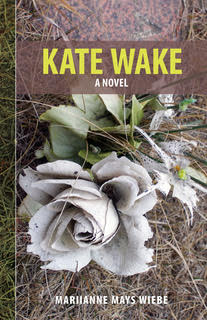
Founder and Current Leadership
Our founding editor is Louis Dudek, deeply respected as a poet, man of letters, and literary animator, who for many years, before his death in 2001, brought his talents and experience to bear upon the editing tasks at DC Books.
Our editors presently include Jason Camlot (poetry), Kenneth Radu (fiction), Dave Henderson (Railway and Transportation History), and Keith Henderson (Managing Editor). Our Communications Director is Giuliana Pendenza.
Tell us a bit about your press. How did you start? Who are your influences, in Canada and beyond? What is your mission?
Historically related to John Sutherland’s legendary northern review by means of the intermediary presses Contact and Delta Canada, DC Books was founded by Louis Dudek in 1974. Under his editorial leadership, it showed a commitment to both serious literary innovation and artistic tradition. Our small press culture cherishes open-mindedness, innovation, and trustworthiness. Our publishing mandate includes:
- serving the literary community of Quebec’s English-language minority.
- being sensitive to the literary expressions of local and national minorities in general.
- being receptive to other, also struggling-to-be-heard sources of imaginative writing, especially young, fresh-voiced literary artists (see our Punchy Writing series).
- publishing imaginative writing dealing with the history, culture, and experience of the railway and transportation systems of Canada’s regions.
What about small press publishing is particularly exciting to you right now?
Excitement’s not a word that comes to mind. A vocation, small press publishing’s more akin to illuminating medieval manuscripts, one that demands similar qualities – patience, self-effacement, perseverance, and attention to detail. In previous generations, writers faced the obstacles of publication. Emily Dickenson never saw her work in book form. Jane Austen did, but only in her later years. In these days of diminishing readership and democratized publication, enormous numbers of books are produced, most to be completely ignored and returned in ever increasing numbers to their source. Today’s barrier is readership, not publication. Such is the modern barbarism of fractured attention. Centuries ago, scribes worked for the smallest of audiences and for the greater glory of God. Small press publishers may not be so motivated, but most would agree with DC Books’ founding editor, poet Louis Dudek: “Publishing and writing literary works is the best cause to which one can give one’s energies; it offers support to humane and civilized values in a time when these are undermined and attacked from all quarters.”
How does your press work to engage with your immediate literary community, and community at large?
By whatever means possible, email, social media, press releases, web site presence, zoom-in launches, outreach to libraries, independent book stores, and most importantly, in these days of readership deficit, through the active involvement of authors themselves, who are best to adhere to the new maxim: “Fifty per cent of time devoted to your creative work; fifty per cent of time devoted to cultivating your readers.”

Ghost Face
Greg Santos
September 2020
Ghost Face deals with the following themes: parenthood, adoption, identity, migration, poetry as memoir, family mythologies, and mourning. The poetry is raw, intimate and deals with complicated and poignant family histories.
“Greg is clearly a poet of great vision and clarity. His voice is extremely confident and strong, with each poem well-crafted and lean… If you enjoy the work of Sarah Howe or Ocean Vuong, I would recommend this book with no hesitation.” Stuart Buck, author of Become Something Frail
“Santos is a keen observer and a great chronicler of modern life who understands that looking at the mess outside his window is as important as feeling the warmth of his loved ones, and that makes his poetry as relatable as it makes it necessary.” PANK Magazine

Landscape with the Fall of Icarus
Zsolt Alapi
May 2020
Landscape with the Fall of Icarus, by Zsolt Alapi, tells the story of an immigrant who has left the United States during the Vietnam War and who tries to find a home in Montreal, which for him is initially an alien culture. Subtly linked as a first-person narrative that travels between the present and the past, the book also explores the narrator’s psyche as he attempts to find meaning in his passion for art and literature.
Rare is the Canadian work of fiction that explores so in-depth the relationship of literature to the psychological, sexual, and personal makeup of an individual while considering at the same time the complexity of exile, both physical and spiritual.

Kate Wake
Mariianne Mays Wiebe
December 2019)
Kate Wake is a novel that narrates a working-through of loss by an individual compelled to return to the original scene (of loss), a sort of underworld rule by sleep, memory and the unconscious. Kate Wake also delves into the fascinating history of psychiatric health practices on the Canadian prairies. A note: Kate Wake was a real person whose gravesite can be found at the cemetery of the former Brandon Mental Health Asylum in Brandon, Manitoba, the second of its kind built in Western Canada. Other than her name, there is no information available about Kate Wake and this story, though based on historical research on the institution, is fiction. Kate Wake is a novel that dramatizes the importance of art in a troubled woman’s quest for strength and truth on her own terms.
